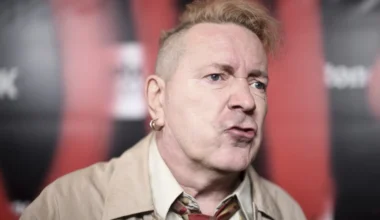The plagiarism case that George Harrison faced for ‘My Sweet Lord’ was unique. Not only was it difficult to detect any hint of intentional plagiarism, regardless of whether it existed. But it was ultimately determined that he did, albeit “subconsciously”. Legal quandaries have plagued the music industry since the beginning of time. But it appears less likely that a formal Beatle will be caught in the crossfire.
Many defended the musician. They claimed that the similarities between Harrison’s hit and The Chiffons‘ 1963 track ‘He’s So Fine‘ were a stretch. His former bandmate John Lennon was less quick to defend him. He directly called him out, claiming that he “knew what he was doing” and that he “walked right into it”.
The saga would last nearly two decades, but Harrison was able to express his thoughts and feelings in a variety of ways over time. In an interview with Rolling Stone. He stated: “It’s difficult to just start writing again after going through that. Even now, when I turn on the radio, every song sounds similar to another.”
“However, the singer put his musings to paper much earlier in 1976 on the track ‘This Song’. In the song, the singer navigated the plagiarism claim in a very direct manner. For example, suggestive lyrics abound, including the playful line “My expert tells me it’s OK“. And also a mention of Bright Tunes Music, the company that later sued Harrison.
Harrison’s tongue-in-cheek approach is evident from the start. It was with the first verse ensuring the listener that “there’s nothing tricky” about the song because it’s not “black or white” and you can’t “infringe on anyone’s copyright”. He also implies that the track exists solely to mock the entire situation, rather than to “win gold medals”.
His motivation for doing this was to express his amusement and frustrations rather than for financial or public gain. He didn’t stop there, though. The music video shows Harrison in a courtroom. He attempts to make his case before the scene devolves into a chaotic circus as a metaphor for what the musician had to go through in real life.
Regardless of whether he intended to or not, Lennon maintained that Harrison knew he was copying The Chiffons. “In his view, Harrison’s downfall in this situation was laziness. Lennon consciously altered music and lyrics to avoid copyright suits. Harrison pretended to be ignorant, hoping he would never be caught out.” “Maybe he thought God would just sort of let him off,” Lennon said, but who knows? Perhaps Harrison genuinely didn’t think he had done anything wrong.







